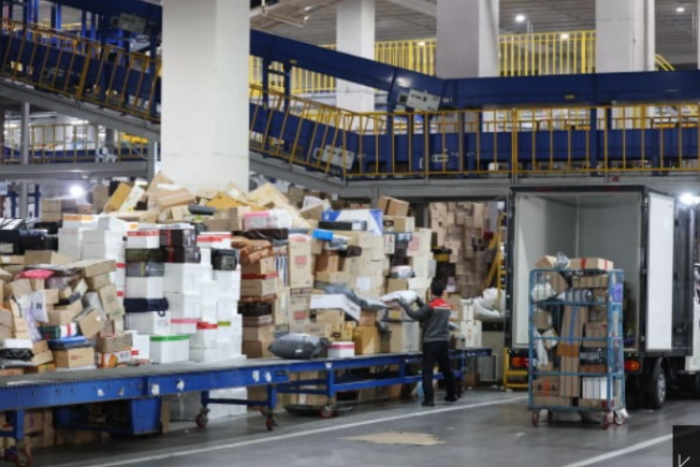South Korea’s logistics centers are ramping up the financial pressure on real estate investment firms. Previously a favored property type, increasingly warehouses are becoming white elephants to investors due to growing construction and land costs and strict licensing processes.
Some asset management firms have recently halted the development of some logistics centers in Korea, according to investment banking sources on April 14. The firms are planning to suspend the development projects, including those for which they have acquired land and business licenses, and watch market conditions for the right time to resume.
Soaring warehouse construction costs is the biggest issue for asset managers. Previously, the investment managers signed fixed-price contracts for logistics center developments, and construction firms received a certain amount of capital for all the construction, building material and labor costs. These days, however, investment managers are in charge of building material and labor costs and construction firms are responsible only for construction costs. The change in contract structure followed as surging prices of building materials, especially copper and rebar, were putting construction companies in the red under the fixed-price system.
Some construction companies are considering contract withdrawals in the middle of projects, despite cancellation charges. They are asking investment firms for an increase in compensation due to growing costs.
“We expect a plunge in the return on investment (ROI) for our logistics centers as construction expenses have risen 40-50%,” an asset management official said. “Some investment managers, which pre-sold warehouses to other investors in the early stage of projects last year, can’t raise selling prices and are saddled with rising costs,” the official added.
Logistics centers had been favored properties for institutional investors, alongside
Seoul-based offices, until the beginning of this year. The total deal volume of Seoul metropolitan area-based grade-A logistics centers
hit a record high of 7.2 trillion won ($5.8 billion) in 2021, according to global real estate firm Jones Lang LaSalle Inc. Amid the heated market, the average return from warehouses has dropped to the early and mid-3% level, similar to that from Seoul-based offices.
Logistics centers development projects started to take off in the Seoul metropolitan area in 2020, and more asset managers were keen to participate in the initial stage of the projects for high returns. But development costs surged due to the Russia-Ukraine war and rate hikes, beleaguering investors.
In terms of logistics centers, institutional investors still prefer those in Korea as the domestic warehouse market is still in an early stage, compared with the mature markets of Japan, the US and Europe. “The values of existing logistics centers will expand due to a supply shortage given the burden on land, construction costs and licensing. The increased value of the properties will lead to higher rental costs,” an IB source said.
Write to A-Young Yoon at
youngmoney@hankyung.comJihyun Kim edited this article.





